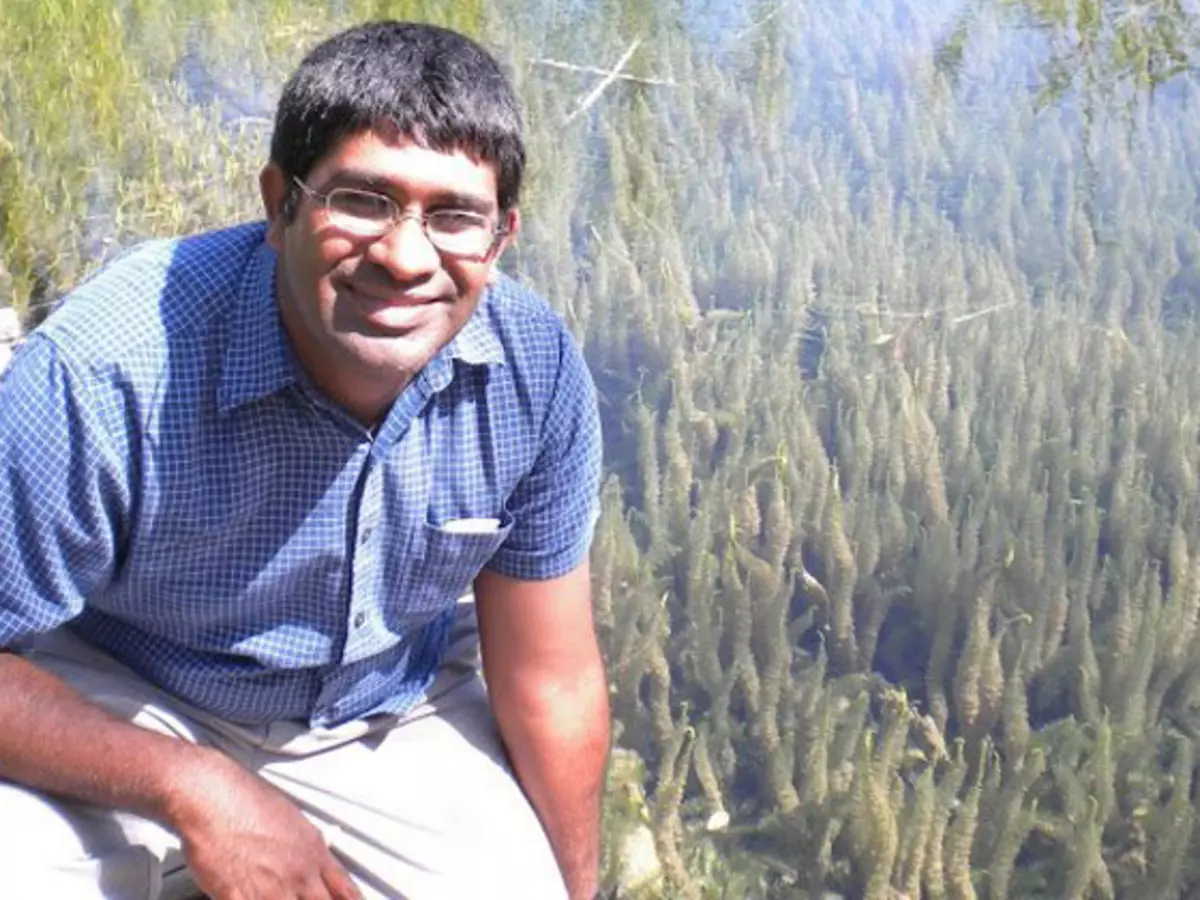Ahmedabad-Born Scientist To Lead NASA Team Looking For More Earth-Like Planets!
In the past two decades scientists have discovered more than 3000 exoplanets planets outside our solar system but none with life as we know it on Earth. There are many more yet to be found in known and unknown planetary systems says Suvrath Mahadevan assistant professor at Pennsylvania State University. A research group led byMahadevan was selected by NASA in March this year to build an advanced instrument named NEID for exoplanet search.

In the past two decades, scientists have discovered more than 3,000 exoplanets (planets outside our solar system) but none with life as we know it on Earth.

americanbazaaronline
However, there are many more yet to be found in known and unknown planetary systems, says Suvrath Mahadevan, assistant professor at Pennsylvania State University.
"The task is difficult but we are hopeful of new discoveries," he said. A research group led by Mahadevan was selected by NASA in March this year to build an advanced instrument named, NEID - short for NN-EXPLORE Exoplanet Investigations with Doppler spectroscopy - for exoplanet search.

dnaindia
The journey from India to NASA
Mahadevan, son of an instrumentation engineer, NS Mahadevan, and English teacher, Vijaya, was born in Ahmedabad. He did his schooling in the city as also in Mumbai and Jamshedpur. An IIT-Bombay alumnus, he went to the US in 2000 for his doctoral studies. He has continued collaborations with researchers in city-based institutions. He is currently in Ahmedabad on a private visit.
Talking about the project, Mahadevan said NEID will be completed in 2019 and installed on the 3.5-meter WIYN telescope in Arizona. The project has received US $9.7 million in funding, more than half of which will be used in making components for the instrument itself.
Prof. Suvrath Mahadevan of Penn State will lead team to detect planets in NASA-NSF partnership #NNEXPLORE https://t.co/CIsdmXsDfQ
¡ª Maria Womack ? (@StarzanPlanets) April 13, 2016
The instrument
"This high-precision instrument will measure the tiny wobble caused in a star by the gravitational tug of a planet or planets orbiting it," said Mahadevan. Giving the example of Jupiter and Earth, Mahadevan said Jupiter causes the Sun to wobble by 12 meter per second while the Earth causes the star to wobble at 10 cm per second.
"The instrument will study the stars for Doppler effect to measure these minute changes," the scientist said.
Congratulations to #SuvrathMahadevan ! God Bless! Proud Indians ?. #NASA #India
¡ª tushar (@rtushar_ind) May 20, 2016
Jai Hind! ?????? @narendramodi https://t.co/QhXU9Ffbyb
The official release from NASA mentions that the project will help confirm and characterize planets discovered from ongoing initiatives such as Kepler/K2 and Transiting Exoplanet Survey Satellite (TESS). NEID will also help identify promising targets for future observation with the James Webb Space Telescope and the Wide-Field Infrared Survey Telescope, the NASA release says. Mahadevan is happy about developments in India's space program and said that the world is closely watching projects such as Mars Orbiter Mission.
"India has been part of a number of international collaborations in the field of space exploration. This will surely benefit researchers and students," he said.
